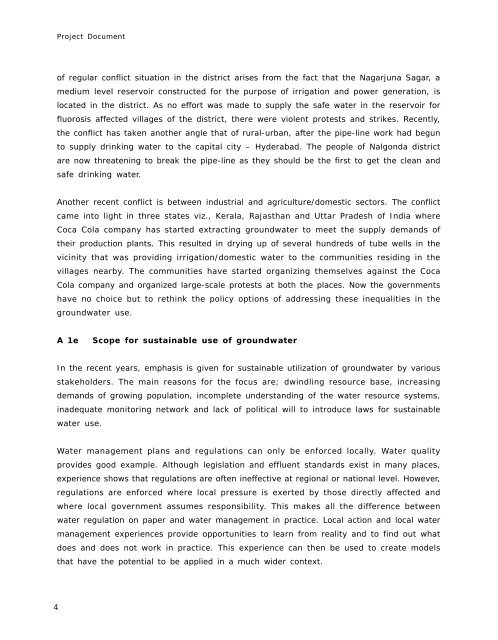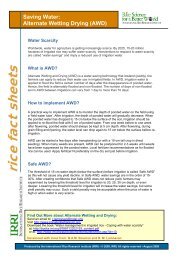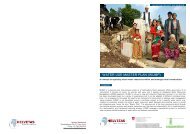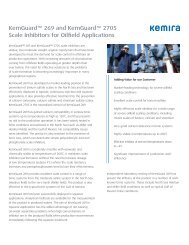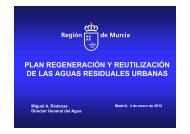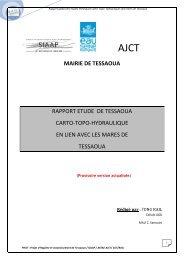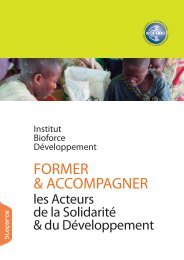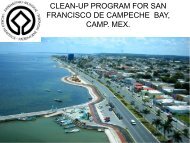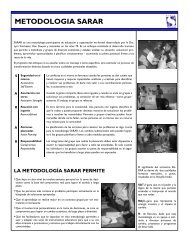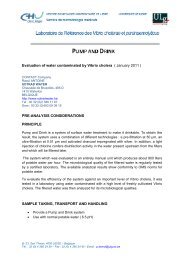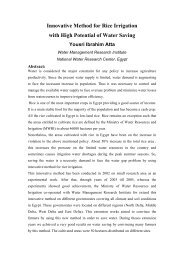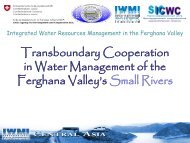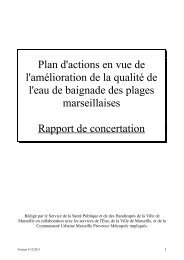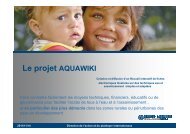FAO Project Document book - Solutions for Water platform - World ...
FAO Project Document book - Solutions for Water platform - World ...
FAO Project Document book - Solutions for Water platform - World ...
You also want an ePaper? Increase the reach of your titles
YUMPU automatically turns print PDFs into web optimized ePapers that Google loves.
<strong>Project</strong> <strong>Document</strong><br />
of regular conflict situation in the district arises from the fact that the Nagarjuna Sagar, a<br />
medium level reservoir constructed <strong>for</strong> the purpose of irrigation and power generation, is<br />
located in the district. As no ef<strong>for</strong>t was made to supply the safe water in the reservoir <strong>for</strong><br />
fluorosis affected villages of the district, there were violent protests and strikes. Recently,<br />
the conflict has taken another angle that of rural-urban, after the pipe-line work had begun<br />
to supply drinking water to the capital city – Hyderabad. The people of Nalgonda district<br />
are now threatening to break the pipe-line as they should be the first to get the clean and<br />
safe drinking water.<br />
Another recent conflict is between industrial and agriculture/domestic sectors. The conflict<br />
came into light in three states viz., Kerala, Rajasthan and Uttar Pradesh of India where<br />
Coca Cola company has started extracting groundwater to meet the supply demands of<br />
their production plants. This resulted in drying up of several hundreds of tube wells in the<br />
vicinity that was providing irrigation/domestic water to the communities residing in the<br />
villages nearby. The communities have started organizing themselves against the Coca<br />
Cola company and organized large-scale protests at both the places. Now the governments<br />
have no choice but to rethink the policy options of addressing these inequalities in the<br />
groundwater use.<br />
A 1e<br />
Scope <strong>for</strong> sustainable use of groundwater<br />
In the recent years, emphasis is given <strong>for</strong> sustainable utilization of groundwater by various<br />
stakeholders. The main reasons <strong>for</strong> the focus are; dwindling resource base, increasing<br />
demands of growing population, incomplete understanding of the water resource systems,<br />
inadequate monitoring network and lack of political will to introduce laws <strong>for</strong> sustainable<br />
water use.<br />
<strong>Water</strong> management plans and regulations can only be en<strong>for</strong>ced locally. <strong>Water</strong> quality<br />
provides good example. Although legislation and effluent standards exist in many places,<br />
experience shows that regulations are often ineffective at regional or national level. However,<br />
regulations are en<strong>for</strong>ced where local pressure is exerted by those directly affected and<br />
where local government assumes responsibility. This makes all the difference between<br />
water regulation on paper and water management in practice. Local action and local water<br />
management experiences provide opportunities to learn from reality and to find out what<br />
does and does not work in practice. This experience can then be used to create models<br />
that have the potential to be applied in a much wider context.<br />
4


